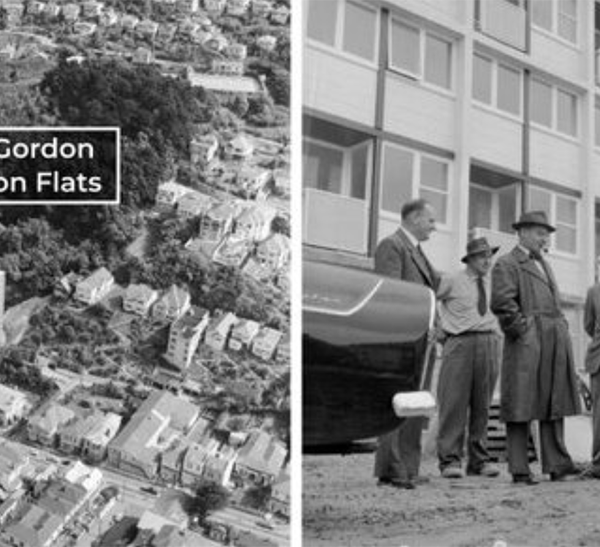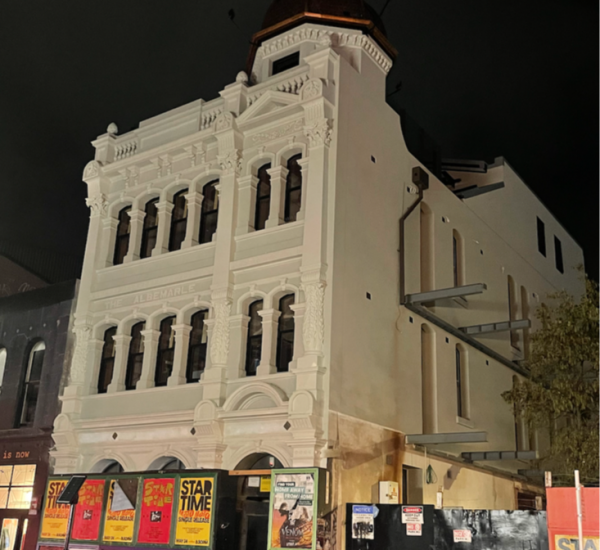So, the big news of the day is apparently going to be the tsunami that didn’t happen to swamp us. No, not the tsunami caused by the earthquake off Canada – a fairly decent-sized jolt, by all accounts, but no one hurt as no one was there – sounds like our 8.1 off Fiordland the other year, where only a fisherman got badly sloshed around…..
No, I’m talking about the tsunami of hard work and house building that is meant to have happened, according to the Productivity Commission. The What? I hear you say? The uncharismatic Bill English was talking about this yesterday, as if we (all NuuZillunders) are all sitting around at work talking about the Productivity Commission, when in actual fact I suspect 99% of the population has neither heard of it, nor plans to read their collected works. But according to Bill, most of us thought our house price was going to continue to rise, and it was only when the Productivity Commission said otherwise, that we all collectively thought that now it could stop rising. Let’s face it – with Kill Bill as the Minister of Finance, he clearly thought that with a record low interest rate being held low for a record long amount of time, someone, somewhere, might want to build a house, some day. Seems that he was wrong.
Obviously faith in the economy and faith in the future of your job might be bigger draw cards to future mortgaging to the hilt. New Zealand clearly needs more housing, and clearly isn’t getting it at present. The Productivity Commission is going to come out today with some answers – but hold on a sec – just exactly who ARE they? Well, you can read all about them here, but the skinny on it is that there are a handful of Directors and a total of just 15 staff, which, if true, must be some kind of record for governmental leanness!
It’s headed up by Murray Sherwin, who is an avid collector of Directorships:
“Murray is an economist with 35 years experience across a wide range of public policy roles. His previous roles include: Chair, Canterbury Earthquake Recovery Commission; Chief Executive and Director General of the Ministry of Agriculture and Forestry; Deputy Governor of the Reserve Bank of New Zealand; member of the Board of Executive Directors of the World Bank in Washington DC; member of the Prime Minister’s Advisory Group; and a member of the Advisory Board of the New Zealand Debt Management Office. Murray is an accredited member of the New Zealand Institute of Directors and a Fellow of the New Zealand Institute of Management.”
No one on the Commission has had what I would call a real job – they’re all ex-University or on loan from Treasury. I was hoping for someone there to have worked for a company, you know, like Fletcher Construction or something, which might have given them some street smarts, but no. They’re not all men – there is one obligatory token woman director, which is good, but there are no token Maori, which is a pity, but not a surprise. Maori are both part of the solution and part of the problem when it comes to New Zealand’s rate of productivity: they comprise much of New Zealand’s working class, and work bloody hard at it too – when you think about it, Maori have built most of our cities, with hard physical jobs digging foundations, pouring concrete, erecting steelwork, etc – our buildings arise off the sweat and toil of Maori muscle. Ive worked on building sites where the site crew are probably over 50% Maori, which shows the hard-workers in the best physical light. But they’re also a huge problem to New Zealand – those physical jobs are going or gone in many industries. Construction is, at least, one area where hard physical work continues to need to be done.
Regardless: today, Bill will introduce a paper written by the Prods, which is going to advocate for less red tape and more suburban land. Judging by the size of the buff that we all have to fill out when we put in a Building Consent application nowadays, a reduction in red tape will be hugely appreciated, although of course most of that form-filling is now to do with inputting the names and details of the relevant LBP that the government has been so diligently putting into place over the last year or two.
The kicker to me is the call for more greenfield land to bring house prices down. As a committed urbanist’s, this seems to me to be just the completely wrong answer, especially in Auckland, which grows upon our country like a nasty cancer. Honestly, the last thing Auckland needs is to get any bigger. It already holds world records for the most spacious, least densely populated city on the planet, which may or may not be to do with the unique siting of the city on two massive estuarine harbors, slicing the city in several loosely connected bits. It’s not helped by the world’s shortest, stupidest, least connected train network either, and you just know that putting another 10,000 three-bedroom houses on the outskirts of the outskirts is just going to create more domestic vehicular hell for all up there.
What this country needs is not new suburbs. It is not new average-sized three bedroom houses. What it needs is a reduction in house size (NZ average is now about 210m2 each new house), and a reduction in property size (my guess – around 450m2 each?). The cheek-by-jowl nature of Mt Victoria’s housing is not high density by world standards, but is very high by New Zealand standards. Car use is low (most Mt Vic residents walk to work), and house size is small. Property size is bugger-all in some cases. Auckland would do well to rebuild its inner suburbs to a similar standard. Remuera, Takanini, Papatoetoe, Ponsonby, Grey Lynn, Glen Innes – all should be compulsoriy purchased back, torn down, and rebuilt at a greater density. House sizes capped at half the current size. Common party walls. No wasted side yards, or back yards, but intelligent planning and sizes for single people on starter salaries.
There is a golden opportunity here for some smart thinking, instead of dumb old greenfield suburbanism. What are we going to get from Bill? Hold your breathe?






Hmmm… well, I’m still holding my breathe. Dompost says:
“Government’s four main aims:
* Increase land supply with new developments inside cities and with subdivisions on the outskirts.
* Reduce the time and cost of the Resource Management Act process; including a six-month limit on the processing of medium-sized consents.
* Improved timing for infrastructure support for new housing projects; including coordinating subdivision work.
* Improving productivity in the construction sector.
Still considering:
* Consolidating consent authorities regionally or nationally.
* Establishing a competitor agency for resource consent/plan changes.”
http://www.stuff.co.nz/dominion-post/news/politics/7878123/Government-plans-to-improve-housing-process
More subdivision doesn’t seem to be the solution – as Tim Watkin points out over on Pundit, the Auckland Council has said that it has 18,000 sections set to go, but only 4,000 houses are getting built each year.
http://www.pundit.co.nz/content/bill-the-builder-can-he-fix-it-lets-hope-he-can
I reckon it’s the problem of large houses plus high construction costs, with no-one interested in building small affordable places because there’s no margin in it, and not enough economies of scale to get the prefab industry up and running in NZ.
Kent – but if the Gov actually made it compulsory to build small affordable places? Ie no more Dot Com sized mansions till you’ve built 30 single bedroom units.
Make lifestyle blocks illegal? Well they’re already a crime against the New Urban police. ZING!
Seriously though, LBs are the biggest waste of either agricultural (if they are more out in the wops) or urban (if it are closing to the urban limit) land EVER.
Tony Watkins (architect) writes on his blog:
“Everyone in New Zealand seems to be talking nonsense about affordable housing.
If you want a house you can afford you need to build it yourself.
It has always been that way and it always will be. It is an oxymoron to suggest that a developer who is in the business of making a profit can also be interested in saving you money. If the government wants to see affordable housing they only need to create a climate which is favourable for the owner-builder. Tony’s 2012 submission to the Productivity Commission on Affordable Housing is on their website and also at http://www.tony-watkins.com/conteent/view/594/83/“